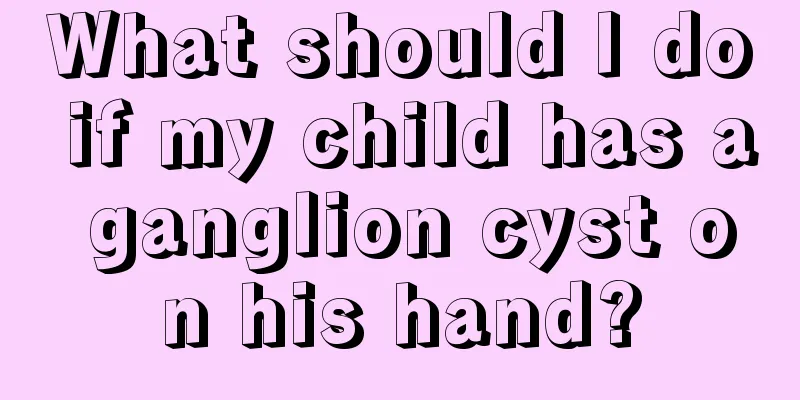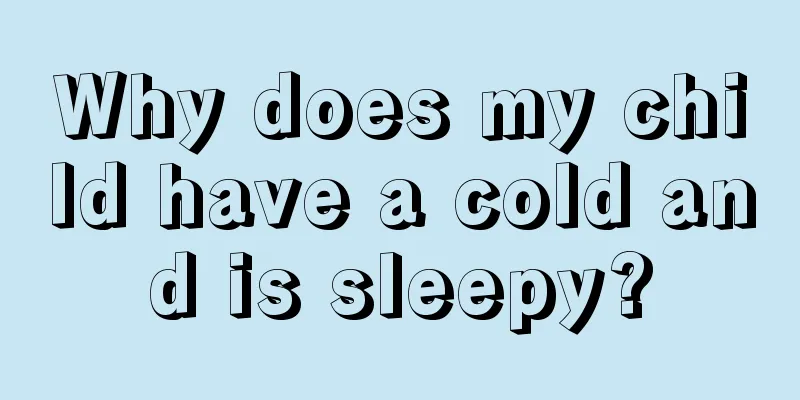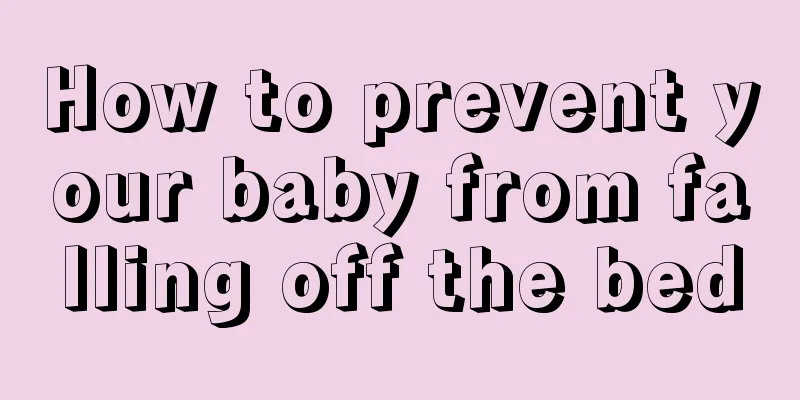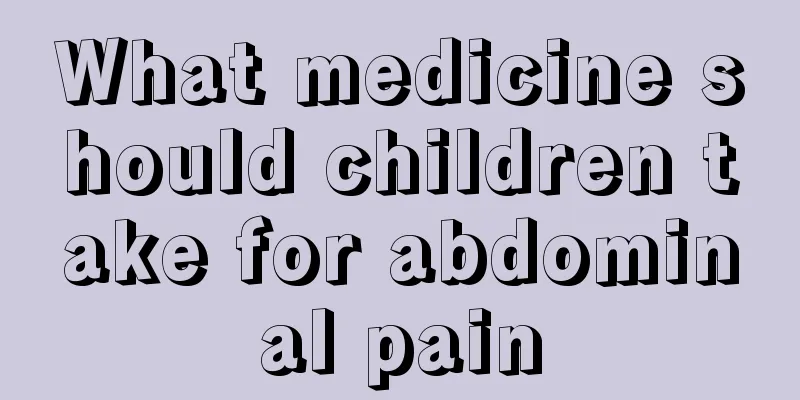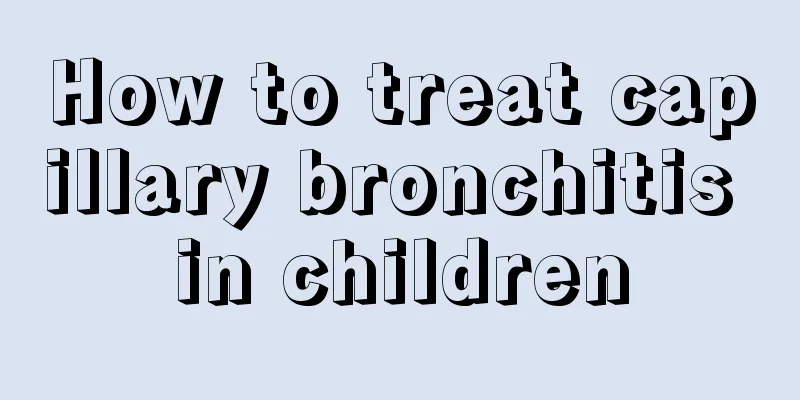Baby diarrhea convulsions
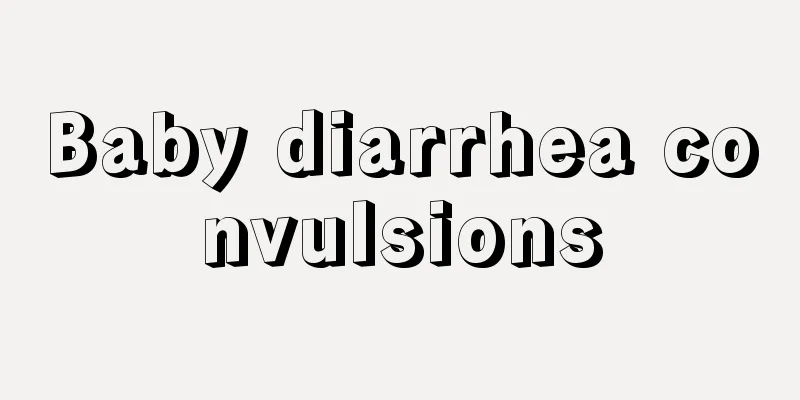
|
Diarrhea is a common symptom in babies. It may be caused by eating unclean food or having a bad stomach. It cannot be ruled out that the baby may have a cold abdomen. If the baby has diarrhea, go to the hospital in time to check the cause and treat the symptoms. Some babies have diarrhea and convulsions. They should drink some rice porridge to nourish the stomach. Egg drop soup or pasta can also nourish the stomach. What should I do if the baby has diarrhea and convulsions? Let’s take a look at it next. 1. Principles of diarrhea treatment Eat a reasonable diet, correct water and electrolyte imbalances and other symptomatic treatments. 2. Treatment policy Eat a balanced diet and maintain nutrition; quickly correct water and electrolyte imbalances; control intestinal and extraintestinal infections; provide symptomatic treatment, strengthen care, and prevent and treat complications; avoid the abuse of antibiotics.
3. General treatment 1. Diet therapy 2. Fluid therapy 3. Infection Control 4. Symptomatic treatment 5. Replenish electrolytes IV. Drug treatment 1. Infection Control For bacterial enteritis, antibiotics are selected based on the pathogen or adjusted based on the results of drug sensitivity tests. For Escherichia coli, choose amoxicillin, gentamicin oral tablets, and polymyxin E. For severe cases, use third-generation cephalosporins. For Salmonella typhimurium, take ampicillin orally; for severe cases, use third-generation cephalosporins. Macrolides for Campylobacter jejuni. For Staphylococcus aureus enteritis, use Xinqing II and vancomycin. For fungal enteritis, antibiotics were discontinued and oral nystatin was given. 2. Symptomatic treatment (1) Antidiarrhea Montmorillonite powder: 1g each time for children under 1 year old, 2g for children 1-2 years old, 3g for children over 2 years old. Take orally with 20-50ml of water, three times a day. (2) Improve the intestinal microecological environment Microecological preparations such as Lactobacillus, Streptococcus faecalis, and Bacillus cereus can be used. (3) Others Aid digestion: You can use gastric enzyme mixture, multi-enzyme tablets, etc. Antiemetic: Metoclopramide, three times a day. Relieve abdominal distension: The cause should be identified and symptomatic treatment should be given. An anal tube can be used to vent gas. For abdominal distension caused by toxic intestinal paralysis, phentolamine can be used by intravenous injection and can be repeated at intervals of 4 to 6 hours. 5. Other treatments 1. Diet therapy Continue breastfeeding and encourage feeding. Patients with severe diarrhea or vomiting may temporarily fast for 4 to 6 hours, but should not withhold water. If the fasting time is ≤ 6 hours, you should resume eating as soon as possible. 2. Fluid therapy From the time the child has diarrhea, give him or her enough fluids by mouth to prevent dehydration. Breastfed infants should continue to be breastfed, and the frequency of feeding should be increased and the duration of single feeding should be prolonged; infants who are mixed-fed should be given ORS or other clean drinking water on the basis of breastfeeding. 3. Zinc Supplementation Children with acute diarrhea should be given zinc supplementation as soon as they are able to eat. For children older than 6 months, 20 mg of elemental zinc should be supplemented daily, and for children younger than 6 months, 10 mg of elemental zinc should be supplemented daily for a total of 10 to 14 days. 20 mg of elemental zinc is equivalent to 100 mg of zinc sulfate and 140 mg of zinc gluconate. 6. Prognosis The prognosis of diarrhea caused by drug-resistant, pathogenic Escherichia coli or fungi is poor; the prognosis of viral enteritis is good. Children with malnutrition and rickets who develop diarrhea have a poor prognosis due to poor body regulatory function, severe illness, late treatment, and the development of serious complications such as acute renal failure or serious secondary infections. |
<<: What does diarrhea look like in babies?
>>: What to do if your nine-month-old baby has diarrhea
Recommend
Why does a child grind his teeth when he has a fever?
Teeth grinding not only happens to adults, but al...
What are the symptoms of baby fever?
Since many young parents have no experience in ha...
What is your experience in treating baby’s café au lait spots?
For parents, the most worrying and frightening th...
What are the symptoms of rice intolerance in babies?
Since birth, babies need careful care from their ...
Six nutritional methods to help middle school students supplement nutrition
1. High-quality protein is essential Protein is t...
Can childhood epilepsy be cured? Professional doctors answer this
If a child suffers from epilepsy, he needs to go ...
What causes newborn babies to fart?
Newborns will fart uncontrollably after feeding. ...
How many times a day is normal for a baby to poop?
The birth of a baby brings joy to countless famil...
What to do if your child eats a coin
Coins are a very common form of currency in our d...
What medicine should children take for swollen tonsils?
Tonsillitis is a common condition that occurs in ...
What should I do if my child has low immunity?
In life, there are some children who are not pron...
At what age is it better for babies to sleep in separate beds?
Taking care of babies is something that parents a...
What to do if your child doesn't sleep on his own
There are many reasons why children don’t like to...
How many baby teeth does a child have?
People will go through the stage of tooth replace...
Six-month-old baby likes to sleep on his stomach
As the apple of adults' eyes, babies are alwa...




